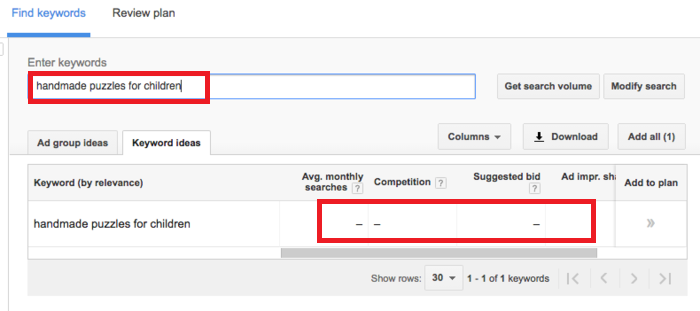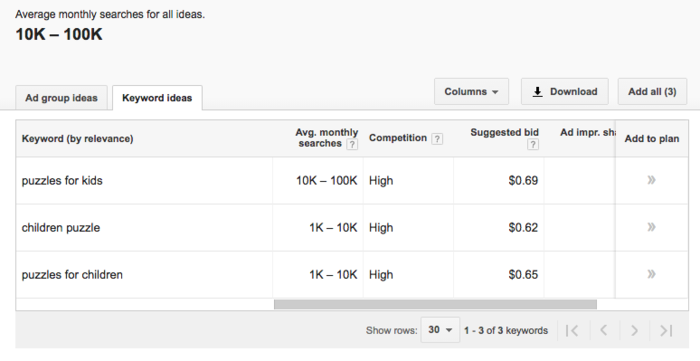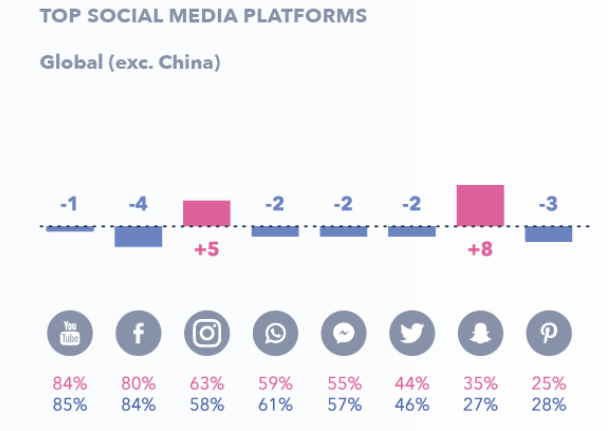
Are you in a crowded industry and can’t seem to stand out?
Does your brand operate in a niche with a small audience?
If you answered yes to one of those questions, then you know reaching your target audience is no walk in the park.
That’s exactly why you must leverage niche marketing.
What Is Niche Marketing?
Niche marketing refers to any marketing tactic aiming to attract and convert a specific market segment with unique preferences and demands.
The main difference between niche marketing and other types of marketing is it uses hyper-personalized messaging and is picky about platforms.
To truly understand what niche marketing is, we must first understand what a niche market is.
Simply put, a niche market is a small, defined segment of a larger market. What makes a niche market more defined than a broad market is the niche has its own needs, preferences, and identity.
A good example is that of FreshBooks. While they’re an accounting software like tons of others in the business, they’ve narrowed down their niche to target small businesses and freelancers.
Advantages of Niche Marketing
There are many advantages to choosing a niche market over a broad one. Let’s explore some of those positive aspects of niche marketing.
Helps Make You More Visible to the Right Audience
Niche marketing means you narrow down your focus to reach only relevant customers. As a result, you could stand out from the crowd with strategies designed for those most likely to be interested in your products or services.
Can Help Optimize Your Marketing Budget
Rather than pouring money to reach a wider audience where you may get few conversions, focusing on a niche allows you to target a specific segment that is more likely to desire your product or service. The result is you could spend less on ads while enjoying better conversions.
Reduces the Competition
Targeting a specific segment of the market may mean reaching fewer people, but going niche has the advantage of less competition. While most brands aim their marketing at the broader market, niche marketing allows you to market a product or service to a specific group.
As your business becomes more specialized, you could see fewer direct competitors.
7 Strategies for Using Niche Marketing to Reach Small Audiences
Then let’s look at seven niche marketing strategies that can help you reach, attract, and convert those hard-to-reach small audiences.
1. Use More General Keywords
Using general keywords may sound counterintuitive as it may feel like more hyper-targeted keywords would be better for bringing in the right traffic. However, using niche-specific keywords may not drive a ton of traffic to your website.
The key to effective SEO is to understand the search terms your target audience uses.
Their search queries will probably include natural language and are unlikely to have extremely specific keywords. That’s why these types of keywords often have ultra-low search volumes. Here’s an example of a specific keyword—handmade puzzles for children—and its search volume:

Zero people searched for “handmade puzzles for children.” That doesn’t mean there isn’t a market for it—the only problem is the keyword used.

By using more general keywords, you drive more traffic to your website. And those looking for handmade puzzles are probably among them.
As you plan your niche SEO strategy, be careful how you conduct your keyword research. Favor general keywords over hyper-targeted ones.
2. Do Extensive Audience Research
One thing making niche marketing a bit more challenging than general marketing is your target audience’s unique demands. You must understand what they want and how they want it delivered.
To do that, you must conduct extensive audience research. Audience research for a niche market involves:
- Social listening: Use social listening tools to monitor what people are saying about your brand, products, or services. Doing so will help you know what they’re looking for from brands like yours.
- Competitor research: Check out the kind of audience your competitors reach and how they engage with them.
- Develop buyer personas: Create buyer personas of your ideal customers to help you better understand them.
Because your target audience has unique needs and preferences, you must conduct extensive audience research to understand how best to reach them. Audience research also helps you understand their pain points and how best to create messaging that addresses them.
3. Choose Your Platforms Carefully
When trying to reach a particularly small target audience, you must consider which social media platforms they use regularly.
You must choose your platforms carefully.
For example, research shows you’re better off reaching millennials on Facebook when it comes to social media. Gen-Zers, on the other hand, prefer Snapchat.

With a niche strategy, you don’t have to be everywhere. You just have to appear on the platforms your audience frequents. Ask yourself questions like:
- Where do they shop?
- How do they find products?
- Which social media channels do they prefer?
The answers to these questions should help you narrow down the platforms you use to communicate with your target audience. Then, tailor your content for those platforms.
Carefully selecting your platforms helps you maximize your marketing budget. You’ll only focus your energy and resources on platforms that could give you a good return on ad spend (ROAS).
4. Dig Deep Into Your Competitor’s Strategies
When it comes to marketing, particularly niche marketing, your competitors can be your best resources because you can learn a lot from their marketing strategies. For example, you can get insight on:
- your audience
- the market
- your competitor’s strengths and weaknesses
Of course, competitor analysis starts by first identifying your competitors. From there, pay close attention to the:
- keywords they target
- content distribution platforms they use
- how they engage with their audience
- how they structure their messaging
Get as much intel as possible from your competitors. Doing so can help you know how to tailor more effective niche marketing strategies.
5. Build Relationships and Utilize Partnerships
Because the number of customers in a niche market is limited, you must devise ways to drum up business continuously. Here are some of the ways to do this:
Build Relationships With Your Audience
One of the keys to success in a niche market is building relationships with your audience and customers. A significant reason for this is that relationships result in repeat customers—it’s generally easier and cheaper to retain a customer than acquire a new one.
Utilize Strategic Partnerships
Strategic partnerships are vital to your success in a niche market.
- Partnerships with specialized marketing agencies: Specialized marketing agencies understand your audience better and are in a better position to identify opportunities and threats in your niche.
- Partnerships with other brands: Get together with a brand your audience already knows. A good example is the partnership between Red Bull and GoPro. This is a partnership made in heaven as Red Bull is a mammoth media brand while GoPro is a brand specializing in making cameras for people who live an active lifestyle.

You can’t ignore relationships and partnerships when it comes to niche marketing. Once people know and trust you, it can become easier for you to sell to them.
6. Develop Brand Loyalty
Building brand loyalty can pave the way for your customers to become your brand ambassadors. It often leads to you having one of the most powerful marketing strategies of all time—word of mouth marketing (WOMM).
Research shows 83 percent of people trust recommendations from family and friends more than any other source. That makes WOMM a potent marketing strategy you must employ. After all, in a niche market, the best way to get the word out about your product is when other customers rave about it.
Again, all this starts with brand loyalty. A few ways you can develop brand loyalty include:
- Create exceptional experiences: From your products to your customer service, ensure every interaction your customers have with your brand is memorable. In a positive way, of course.
- Engage with your audience: Leverage every opportunity you get to engage with your customers, be it on social media, through email, or any other channel. Add value every time you do.
- Anticipate their needs: Use your buyer persona and customer behavior data to predict what your customers are likely to need and offer it to them. Doing so shows you value them and want to make their lives easier.
- Align your brand with your customers’ core values: 83 percent of millennials prefer to buy from brands that align with their values. Knowing the core values of your target audience and aligning with them is crucial to developing brand loyalty.
In short, a loyal customer base is an essential ingredient for success in niche markets.
7. Establish Yourself As an Authority in Your Niche
One of the biggest challenges of being in a niche market is winning your customers’ trust. Because of their unique preferences, they need to know you can deliver as promised.
That’s why part of your niche marketing strategy must include establishing yourself as an authority in your niche.
A few ways to help you establish your authority include:
- Create valuable resources: Resources like blog posts, case studies, and white papers can showcase your expertise and build authority.
- Give free advice: Leverage niche forums and social media to engage in conversations with your niche audience. As you do so, give free advice. This could show your customers you understand their needs.
- Run webinars: Information for niche markets can be scarce. Run webinars to educate and inform your audience to help them find what they need.
Once you establish yourself as an authority in your niche, customers should come looking for you, and their word of mouth could result in free marketing.
Conclusion
Niche marketing can be pretty tricky if you don’t know how to go about it. With a proper niche marketing strategy in place, you should be able to:
- optimize your marketing budget
- increase your conversion rates
- reduce your competition
Your niche market is always looking for people who understand them. Once you figure out exactly who they are and what they need, get out there and start selling.
Which niche marketing strategies resonated with you the most?
from Blog – Neil Patel https://ift.tt/2QWpxOS

No comments:
Post a Comment